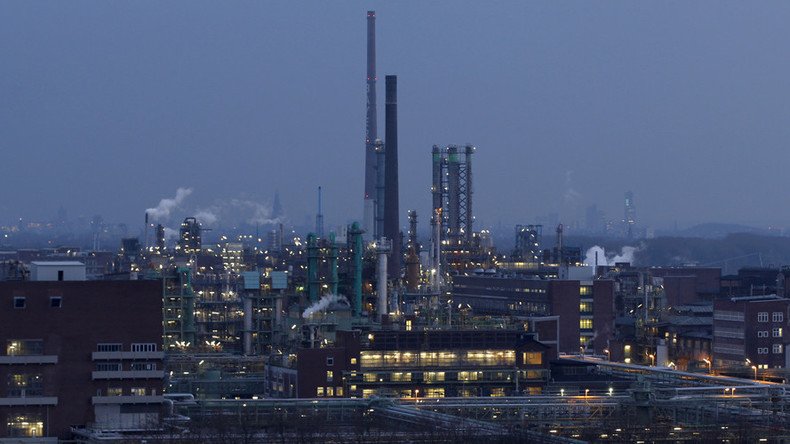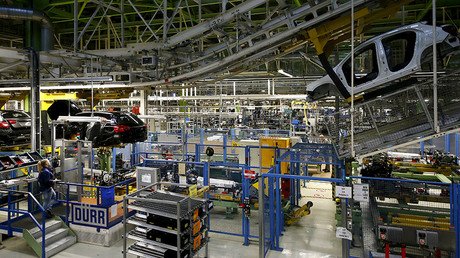German economy slows on weak investment in construction

Growth in Europe’s largest economy slowed in the second quarter of 2016, but less than forecast, according to estimates from Germany’s statistics office.
Gross domestic product (GDP) expanded by 0.4 percent between April and June, down from 0.7 percent in the first three months of the year, said the National Statistics Office (Destatis) on Friday. Annual GDP growth slowed to 1.8 percent from 1.9 percent in the first quarter.
Germany’s economy was supported by exports and consumer spending, but weaker investment in construction and machinery hampered growth.
“After a strong first quarter, a decline was recorded, especially in gross fixed capital formation in machinery and equipment and in construction,” Destatis said.
The chief economist at ING-DiBa, Carsten Brzeski, said that Germany’s economy had seen a slowdown “and hardly anyone notices,” adding that investment must increase to support growth.
Although the performance of Germany’s economy has been impressive since 2009, “the current recovery is clearly running on its very last leg,” said Brzeski.
#Bruttoinlandsprodukt im 2. Quartal 2016 um 0,4 % gestiegen #BIPhttps://t.co/a850BiHcbQpic.twitter.com/0xLOlt2T2i
— Destatis (@destatis) August 12, 2016
In a separate press release on Friday, Destatis said that inflation had risen by 0.4 percent in July, fuelled by rising food and services prices.
Last month, the International Monetary Fund warned that Germany’s economic growth outlook was at risk in the light of Britain’s vote to exit the European Union.
Expecting migrants to enrich German economy is 'fairytale' - #AfD leader to RT https://t.co/xK9rX95ia8pic.twitter.com/g35CSbbxvY
— RT (@RT_com) June 21, 2016
The IMF has called on the German government to carry out various structural reforms in order to address the growing challenges of the country’s rapidly ageing society, recommending that it create more incentives for women to work full time and for older workers to retire later. The fund has also stressed that new migrants need to be integrated into the labor market.
“So far, Brexit has only created headlines with no impact on hard data, but weaker sentiment will slowly feed into the real economy,” Johannes Gareis, an economist at Natixis in Frankfurt, told Bloomberg. “There will be an effect. It will show over time in the form of lower investment and also lower private consumption.”













